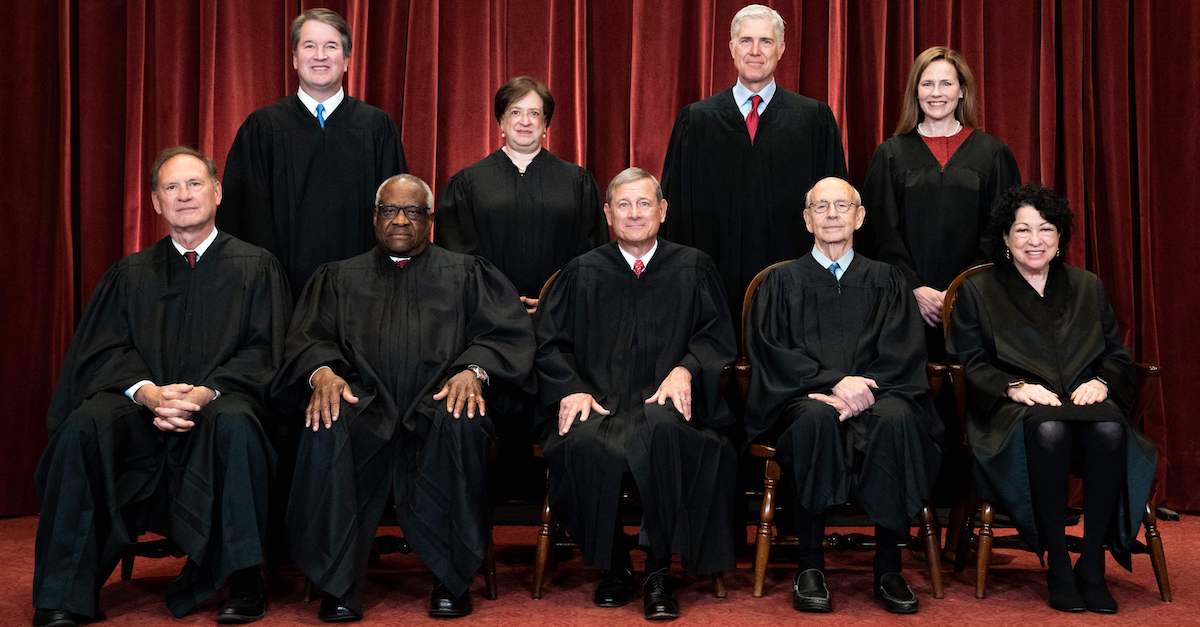
The justices were noticeably skeptical about granting “Chevron deference” to federal administrative agencies during oral arguments Monday. This question, which essentially boils down to a contest between the judicial and executive branches, has long been a thorn in the Court’s side — and it’s an area of particular interest to Justice Neil Gorsuch.
The appeal from the Ninth Circuit, Xavier Becerra, Secretary of Health and Human Services v. Empire Health Foundation, for Valley Hospital Medical Center, is about what formula the Department of Health and Human Services (HHS) should to calculate federal Medicare payments to certain hospitals known as “DSH hospitals.” DSH stands for “disproportionate share hospitals,” meaning those that care for a high percentage of low-income patients. DSH hospitals receive extra Medicare funding to account for the increased costs associated with low-income patients.
The precise amount of the extra funding is calculated based on a complex formula set out by the Medicare statute, and there is considerable disagreement as to the proper use of the statutory terms “eligible for” as contrasted with “entitled to” when applying that formula. Empire Health Foundation sued, arguing that HHS’s calculations intentionally deprived DSH hospitals of over $600 million, thereby circumventing Congress’ statutory intent.
A major aspect of the case rests on whether SCOTUS will defer to HHS’ interpretation of the Medicare statute (as opposed to a typical scenario in which a court would make any interpretive decisions). That question may give the justices the opportunity to gut a controversial tenet of administrative law known as “Chevron deference,” which allows administrative agencies to set rules of statutory interpretation for administrative regulations.
During Monday’s oral arguments, three of the Court’s conservative justices came out swinging against HHS and any argument supporting Chevron deference. Justice Clarence Thomas called the statutory language “indecipherable,” before grilling Assistant to the Solicitor General Jonathan C. Bond on the ordinary difference between “entitled to” and “eligible for.”
Justice Brett Kavanaugh came prepared with lengthy list of questions for Bond, pressing the attorney to explain the decades-long history of HHS’ taking inconsistent positions on the matter. Chief Justice John Roberts joined in, explaining that there were “big problems with HHS,” and that Congress drafted some of the relevant statutory language to directly address its frustration with HHS.
Justice Sonia Sotomayor cut through the questions to ask bluntly, “Counsel, do we give you any Chevron deference? Are you relying on that at all?”
When Bond answered without mentioning Chevron, Sotomayor reprimanded, “Answer my question. Are you entitled to Chevron deference?”
Later, Justice Samuel Alito returned to this line of questioning, also pressing Bond on whether he was specifically asking the Court to give HHS Chevron deference.
Justice Stephen Breyer used his time to pose questions that appeared to be more a defense of the Chevron doctrine generally. Speaking about the Medicare regulations, Breyer admitted, “The chances I understand it correctly are near zero.”
The justice went on to bring the dispute back around to the individuals it involves. The DSH formula, explained Breyer, requires a distinction for individuals who have Medicare, but for whom Medicare refuses to pay.
“Let’s call them people who have exhausted their benefits,” said Breyer, before continuing, “These people are exhausted. Just like me after reading this case.”
Continuing to reduce the Chevron question to basic common sense, Breyer argued, “If I were in Congress I’d say let the agency do what it wants as long as it’s reasonable, because I have no idea.”
Justice Gorsuch, however, a longtime critic of Chevron deference, joined in with a perspective of his own. Noting that in contracts disputes, courts tend to pay attention to party’s interests, Gorsuch asked whether it is fair to defer to a federal agency’s interpretation when that agency has a financial stake in the outcome.
Attorney Daniel J. Hettich, arguing on behalf of Empire Health Foundation, faced tough questions from the justices as well. Justice Elena Kagan commented that Hettich has “an equal or greater problem” with his argument in that he was interpreting a key phrase “in a way that is not the way we would in the rest of the statute.”
While the Chevron doctrine is not necessarily an ideologically liberal concept, conservatives are often hostile to the doctrine as part of a general hesitancy to empower federal administrative agencies. Indeed, both Justices Thomas and Kavanaugh have been critical of Chevron deference in the past. Even Justice Breyer, who has had kind words for the efficiency and wisdom of Chevron, said during Monday’s oral arguments: “I’d have an awful qualm about using Chevron here.”
Listen to full oral arguments here.
[image via Erin Schaff/Pool/AFP via Getty Images]